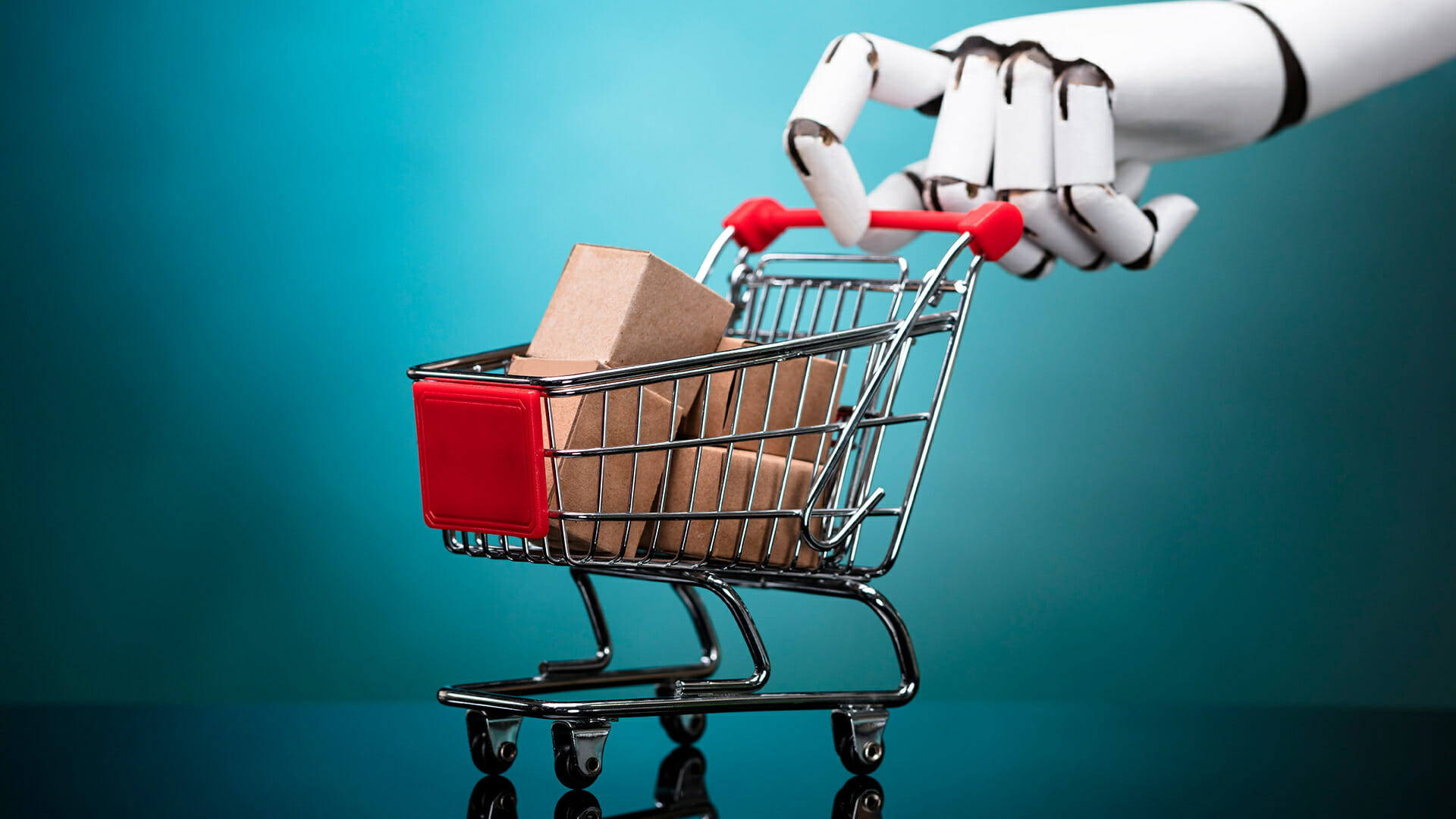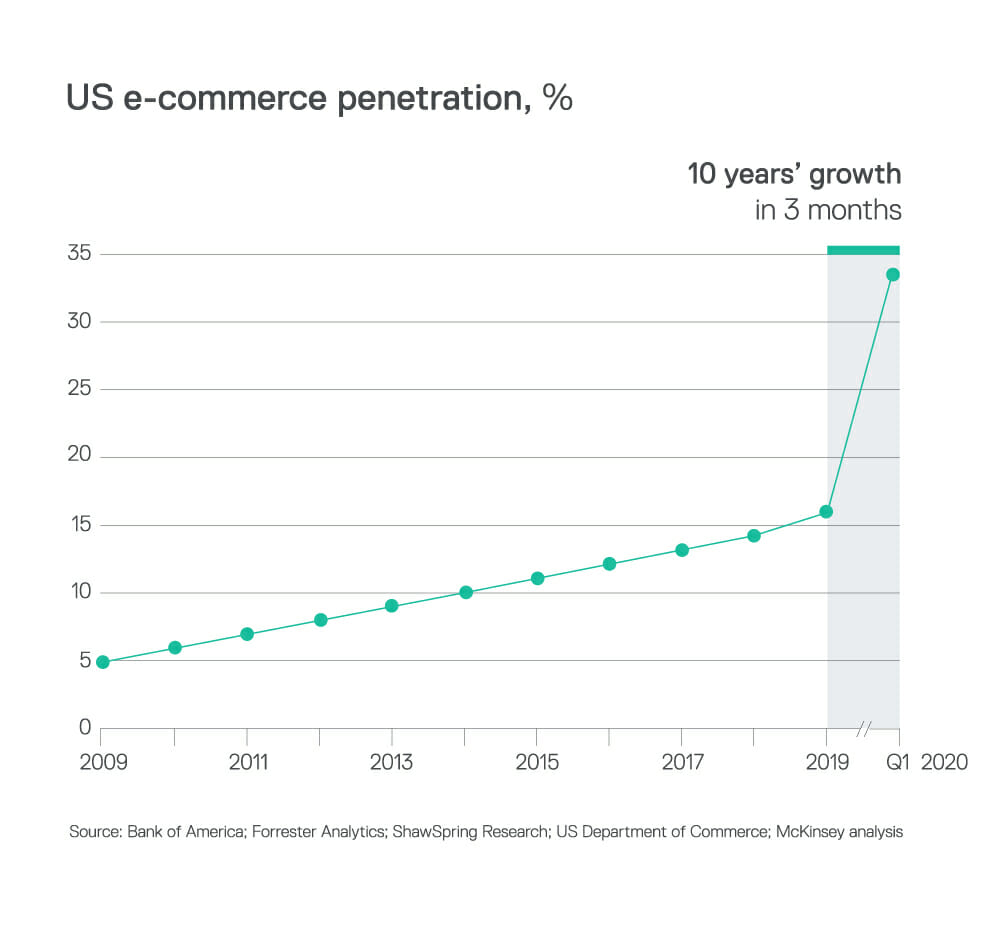AI
Personalization Through AI in B2B E-commerce
In e-commerce and elsewhere, use of Artificial Intelligence is on the rise. Tackling a diverse range of pain points for suppliers, these intelligent integrations can also be utilized to achieve one of modern e-commerce's crucial goals: personalization.


The global revenue for Artificial Intelligence software is on the rise. AI’s market value is predicted to reach $126 billion by 2025, a massive increase from $10.1 billion in 2018. In that same year, 31% of top-performing companies planned to incorporate AI into their processes within the next 12 months, a percentage which will no doubt have ballooned exponentially given the rapid uptake of digital commerce during the pandemic.

Recent advancements in neural networks, data tools and affordable cloud-based software have also made AI more accessible than ever before. In 2019, a survey by Deloitte found that 49% of companies incorporating AI into their operations were doing so via cloud-based services.
With its myriad advantages for e-commerce, it’s easy to see why increased availability is not the only reason AI is growing in use. Many pain points for retailers and suppliers can be tackled with its intelligent integrations; supply chain management can be more accurately monitored to ensure products and materials are always available; On-site searches can be analyzed to ensure the most relevant products are always shown for certain keywords; Sentiment analysis can be applied to customer reviews to weed out fake submissions and offer interested buyers a time-saving snapshot of feedback on products.
These advantages could be so great that, in a recent forecast, Gartner predicted that e-commerce platforms using AI will achieve an improvement of at least 25% in customer satisfaction by 2023, with welcome by-products of increased revenues and cost reductions.
Aspects of this increased satisfaction, with the help of Artificial Intelligence, can no doubt be linked to the personalization of the customer’s purchasing journey.
Getting Personal: Personalization in E-commerce
Personalization has been a crucial goal for e-commerce in recent years. Particularly since the pandemic, which saw consumer loyalties falter, customer-centric purchasing journeys are more important than ever. Research has shown that 63% of consumers expect retailers and suppliers to understand their expectations and unique needs. This figure is even higher for B2B buyers at 76%, who report spending 48% more when they experience a personalized service.
There are fewer, more scalable methods to efficiently personalize B2B purchases than by using Artificial Intelligence. Integrating AI into your processes can help achieve customer-centric interactions in three major ways:
-
Recommendations and suggestions
You’ve most likely experienced AI personalization in the last week, if not the last 24 hours. Those recommended shows on Netflix or suggested products from Amazon are all examples of Artificial Intelligence personalizing your experience. This personalization, similar to a virtual personal shopper, allows businesses to place intelligently recommended products directly in front of a customer. With machine learning at work in the backend, product recommendations are not generated purely from the customer’s previous purchases, but also customers who are similar to them, which can be determined from a range of factors.
Reports show that 10-30% of all e-commerce purchases are due to recommendations, meaning the smarter and more personal these suggestions can be, the better chance you have of making more sales.
-
Diverse touchpoints
Personalization can also be used to diversify the channels customers use to purchase products or services. By providing multiple touchpoints and expanding an omnichannel offering, each customer can engage with your platform via the integration they personally find most accessible.Some of these touchpoints, such as smart shelves or dash buttons, won’t necessarily utilize AI in every instance, but voice assistants and wearables increase the chances of intelligent customer interactions. Data from all touchpoints can also be fed back into AI and used to make better business decisions.
-
24-hour customer service
Artificial Intelligence can further be used to personalize customer interactions via intelligent chatbots. Not only can these provide around-the-clock customer service, allowing users to reach out when most convenient for them, but their use of natural language processing make responses human-like whilst addressing the user’s needs. With 90% of customers preferring to do business with organisations able to answer enquiries immediately and 48% of consumers preferring live chat over any other method of contact, it’s clear to see how this implementation can increase customer-centric processes.
This integration can also lead to increased sales, with 47% of consumers reporting that they would buy items from a chatbot. And this is not a technology limited to utilization in B2C markets. 58% of companies utilizing chatbot technology operate within B2B industries.

How can Spryker help access these benefits?
Spryker offers innovative integrations which allow you to harness the benefits of personalization via AI.
These are largely available via our Glue REST API, an application which connects the Spryker Commerce OS back-end with a wide range of touchpoints and third-party systems. The application can read and interact with these touchpoints, such as voice assistants, wearables and smart shelves, unlocking new channels customers can purchase from and communicate with your business.
For example, thanks to our Glue API third-party integrations can be implemented. These can generate product recommendations based on the customer’s purchasing history as well as other factors. The value from this bears out in the data: product recommendations can improve conversion rates by 915%, increasing average order value by 10.3% across all devices.
Utilizing multiple devices is also possible via the Glue API, and in some cases via Spryker tech alone. These devices, or touchpoints increase personalization in the customer’s purchasing journey by making your e-commerce platform accessible at the touchpoints most convenient to them. In addition, some integrations, such as voice assistants, will incorporate AI, offering customers a smarter purchasing experience.
High levels of accessibility through headless touchpoints further heighten personalization when customers can communicate with an AI chatbot available at their convenience. The Glue API can also make this possible by connection with a third-party application. As well as assisting existing customers with queries, chatbots can be the first step in lead generation with new customers. Utilizing a chatbot on your homepage will allow new prospects to leave details with what they believe is a real-life employee, allowing your sales team to follow-up at their convenience. This is increasingly important for B2B buyers, 81% of whom left websites requiring them to fill out forms rather than speak with an operative.
Spryker can also alleviate a further pain point when it comes to the integration of AI. A recent report showed that difficulty hiring professionals with relevant skills was the largest barrier to AI adoption in some organizations. With Spryker’s OS and Glue API connecting your front-end to capable third parties, possible integrations can be established in a speedier manner, proving to be one less thing to worry about when taking your first steps towards Artificial Intelligence.
Every e-commerce business should be utilizing the wide range of technology available to ensure personalization is taking place. With statistics like those above in mind, it takes little intelligence, artificial or otherwise, to conclude that AI is an integration worth making.
Ready to incorporate this e-commerce essential into your online offering? Learn how AI can help your business personalize customer journeys by asking our sales team for a demo!